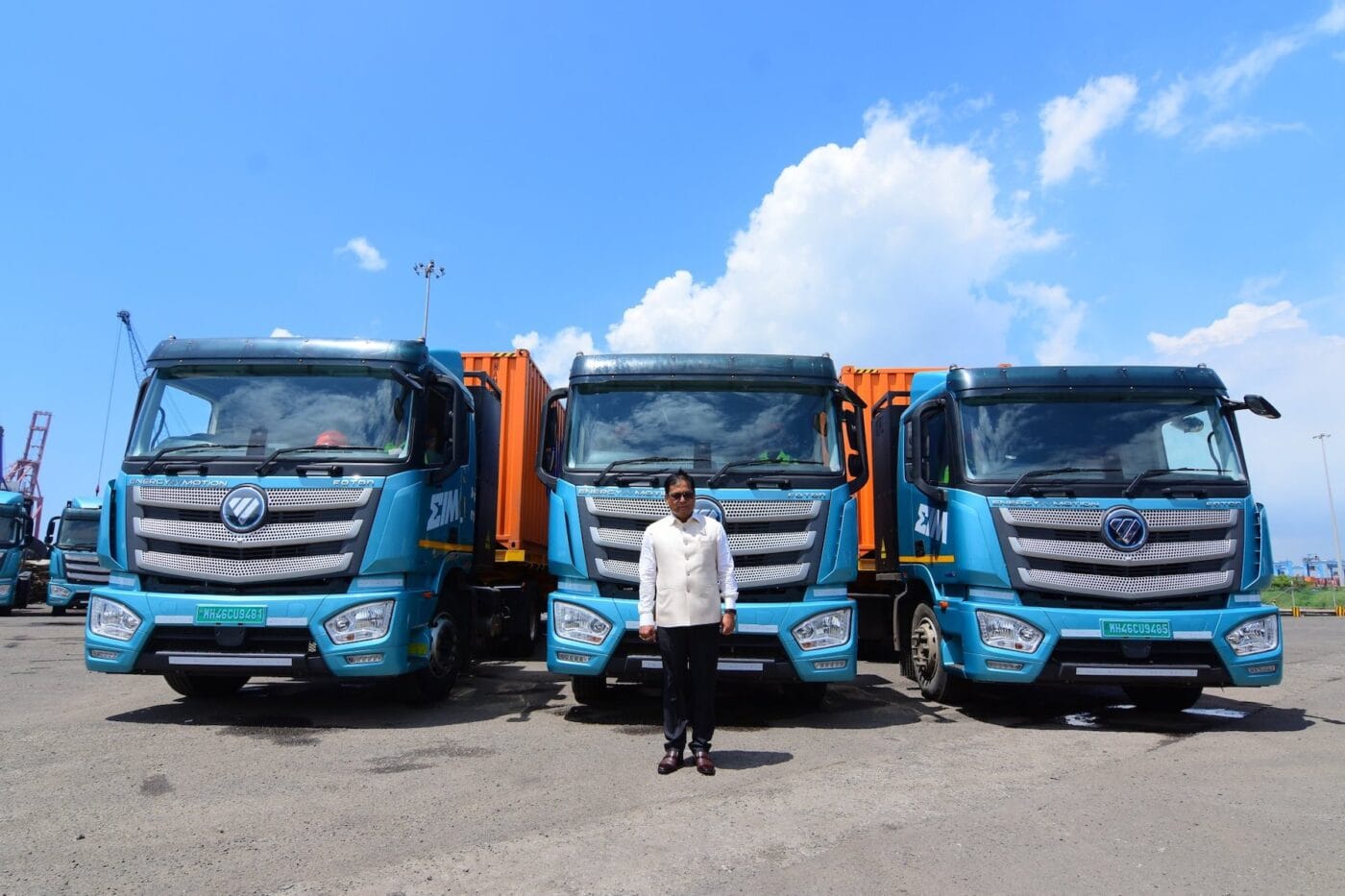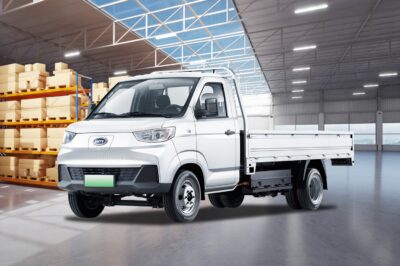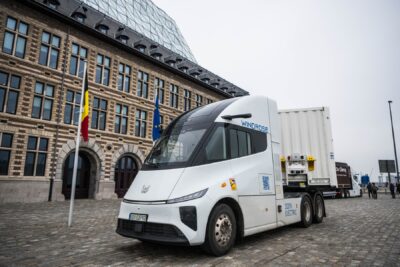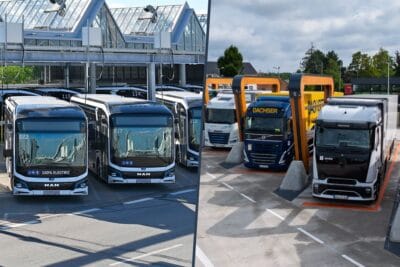India deploys its first fleet of battery-swappable heavy-duty e-trucks
JNPA has deployed 50 battery-swappable electric trucks, and by the end of the year, it expects to add 30 more, reaching 80 units. By the end of 2026, it aims to replace 90% of its fleet of about 900 heavy-duty trucks with electric models. The port authority will create a dedicated lane for EVs at all terminals, said Unmesh Sharad Wagh, Chairman, JNPA, and Chairman and Managing Director, Vadhvan Port Project Limited (VPPL).
Energy In Motion, a Mumbai (Maharashtra)-based e-mobility solutions provider, is supplying the battery-swappable electric trucks to JNPA. It also sets up the battery swapping station, which replaces the electric truck’s in-use battery pack with a fully charged one in seven minutes.
The company is apparently using its 55-tonne tractor called ‘Ashwa,’ a renamed version of one of Foton’s eAuman series models, for this deal. The Ashwa features a CATL-made battery pack with an energy storage capacity of 282 kWh. In his speech at the flag-off ceremony, Energy In Motion Managing Director and CEO Narendra Murkumbi said that the company has conducted road- testing in local conditions for more than 100,000 kilometres.
Since May this year, Energy In Motion has held the exclusive rights to market and assemble Foton’s electric heavy-duty goods vehicles in India for six years. Last month, it signed a Memorandum of Understanding with the Government of Maharashtra to establish an electric truck factory in Talegaon, a town on the outskirts of the state capital Pune.
The company plans to invest 10.65 billion rupees (approximately €102 million euros) in this plant, starting with one billion rupees (approximately €9.6 million euros) in the first phase. It will start assembling electric trucks there by June 2026.
In its corporate presentation earlier this month, Energy In Motion stated 6.3 million rupees (approximately €60,500 euros) as the price for its electric tractor, excluding the battery pack, and said that it has sold 125 units already. The company expects localisation efforts to bring the price down to 6 million rupees (approximately €57,700 euros) by March 2027. It plans to set up eight to ten battery swapping stations by March 2026 and expand the network to 20-30 outlets by March 2027.





1 Comment